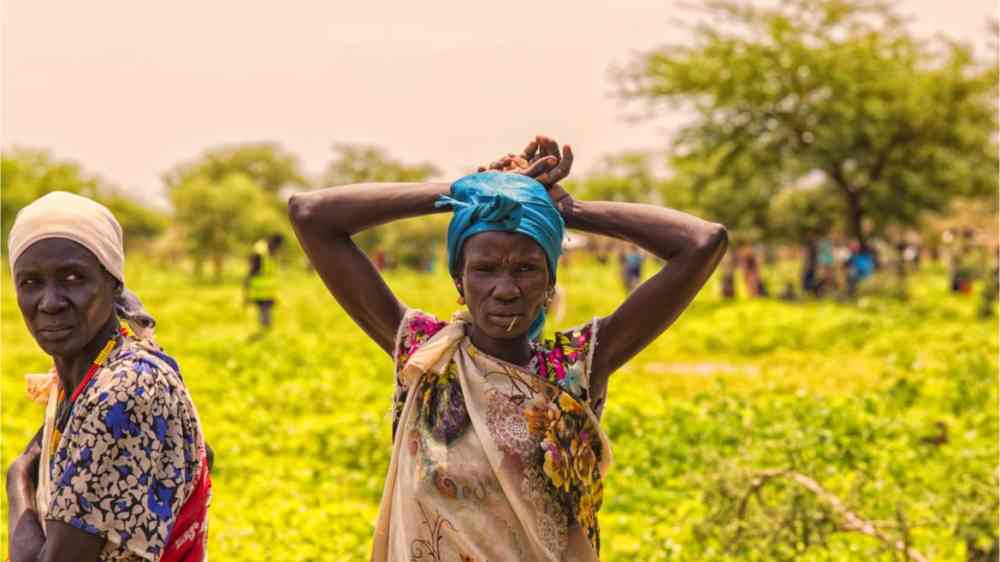Improving early warning to enable early action

This year’s World Meteorological Day, emphasised the importance of early action and early warning systems for impact-based forecasting – a focal point for NORCAP’s climate services experts.
NORCAP experts work closely with national metrological centres in Sudan, Senegal, Niger and Burkina Faso to improve weather forecasting systems. Their aim is to ensure that both the quality of the data and the communication systems in place distribute early warning of incoming weather and climate events and enable communities to prepare.
The consequences of changes in climate and weather are especially harmful where livelihoods depend on practices such as subsistence farming. Countries in the Sahel region in Africa are among the worlds’ most vulnerable to droughts, heat waves and sudden rainfalls due their dependence on agricultural practices, coupled with a lack of infrastructure and increased levels of food insecurity, poverty, political instability and conflict.
Ensuring that the forecasting of extreme weather events is timely and effectively communicated in these regions can save both lives and livelihoods. This implies a shift away from general weather forecasting and towards “impact-based forecasting”, where data on hazards, risks and vulnerability are combined to predict what weather will do rather than simply what it will be.
In collaboration with national metrological centres in Sudan, Senegal, Niger and Burkina Faso, NORCAP Climate experts, Faith Chivava, Dazangwende Emmanuel Poan, Boubacar Issoufou and Ulrich Jacques Diasso improve systems of forecasting, facilitating communication pathways to users and increase community and stakeholder engagement.
Early warning saves lives
Warnings systems are available in Niger, but the problem is that they are not used quickly enough for communities to prepare themselves and reduce damage. Limitations of data in current systems and lack of resources are some of the areas that must be improved.
“To make communities more resilient to effects of changes in climate, it is necessary to set up early warning systems that can easily be adapted to local needs,” says Boubacar Issoufou, a NORCAP expert working with Niger’s national meteorological authority, Direction de la Météorologie Nationale du Niger (DMN).
Issoufou has organized activities to build the capacity of monitoring and reporting systems benefiting both the metrological centre and the local community. He has also contributed to developing monthly weather forecasts that are used by people and national authorities. The forecasts include information on past extreme weather events and their meteorological parameters to provide recommended actions to limit the impact of future weather events.
“Early warning and rapid action provide the best tools for adaptation to the growing risk posed by climate change. NORCAP’s support on climate and disaster risk reduction will allow us to better understand the risks and their impacts on the country, which will then allow us to put in place appropriate early warning systems,” says Lawan Gaptia, DMN’s general director.
Early Warning systems strengthen preparedness
In Senegal, Dazangwende Emmanuel Poan has worked with the National Meteorological Service to develop one of West Africa’s first numerical weather forecasting systems. The system runs continuously and captures severe weather events, such as rapidly developing storms and sudden floods.
“The system allows us to quickly send out early warnings, hours to days ahead of a weather event, enabling local communities and national institutions to strengthen the preparedness of the entire country,” says Emmanuel. A key part of Emmanuel’s work includes knowledge sharing and communication training of staff at the metrological service, to ensure that weather forecasting information is meaningful and useful to the public. This work includes finding ways to cater for the wide range of needs among the target audience.
A roadmap to strengthening early warning systems
Faith Chivava, works with the National Meteorological Authority in Sudan. In her work, collaboration and co-production have been key to ensuring that weather forecasting systems fit the needs of those it is intended to serve.
“We are working with local partners and local organisations to agree on the current challenges and opportunities and the way forward,” says Faith. “This work has created the basis of a roadmap for our transition towards climate services co-production in Sudan. Part of the work has been to facilitate workshops on early warning systems to foster collaboration among stakeholders and partners.”
Faith’s contribution to climate services in Sudan was emphasized by Sudan Meteorological Authority’s General Director, Dr. Hanan Magzoub Rabbah. “With the support of NORCAP experts Faith Chivava and Sinclair Chinyoka, we organized the first stakeholder engagement workshop under the World Meteorological Day theme of Early Warning and Early Action,” says Rabbah.
As a result of the workshop the roadmap was finalised, including commitments from stakeholders that will be presented at the first Sudan Climate Outlook Forum, proposed for May 2022.
Clear communication strategies are key
NORCAP expert Ulrich Jaques Diasso has helped implement the hydrological and meteorological (Hydromet) program in Burkina Faso. The Hydromet program aims to strengthen climate resilience through building the technical and institutional ability of local and national agencies involved in risk reduction and disaster management. Ulrich is currently working closely with the National Meteorological Agency of Burkina Faso (ANAM) to ensure that the results of the Hydromet program are sustained past its lifetime.
“The best way to ensure sustained climate resilience is to strengthen the delivery of climate information to the sectors providing key services to society, including agriculture and food providers, as well as strengthening DRR platforms,” says Ulrich. “This includes installing observation grids on farms, improving the quality of forecasting tools, and sharing warning information to the farmers.”
Ulrich has also initiated the development of both a standard operating procedure and a communication strategy for the national platform for disaster risk reduction (DRR). This work has been important to ensure that the information collected through the platform reaches all parts of society.
"A good observation network is the backbone of early warning and early action,” says Ulrich. “Without a clear definition of the roles and communication strategy, early warning systems will not be effective.”
